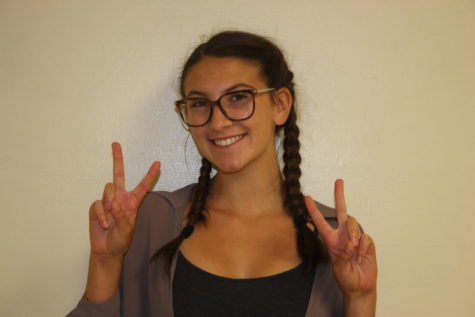Let’s talk about it
September 22, 2017
There are three things you should never talk about in polite company: money, religion and politics. Luckily, I’m not polite.
It has always been a principle for teachers to conceal their political views in the classroom. While this has made the school environment much more tepid, not discussing these issues has also created a serious consequence: talking about politics makes us uncomfortable.
Teachers should be allowed to openly discuss their political views because incorporating politics into conversation in a constructive way is vital to ensure that students are politically active and aware once they leave LT.
The absence of political discussion from the classroom has led these conversations to be taboo. From personal experience, it seems that a majority of high school students prefer to ignore politics and even look down upon those who care about politics at our age. The forbidden discussion of these important matters discourages kids in high school to care about politics, which results in students leaving LT with little desire to be politically active as adults. The high level of politically-detached youth in U.S. was shown after last year’s election. According to The Center for Information and Research on Civic Learning and Engagements, youth voter turnout was only 50 percent in 2016.
As American citizens, it is our job to fulfill our social responsibility and be active members of the American government. If hundreds of students are leaving LT without a strong grasp of their political ideology and what they believe the government should accomplish, it is impossible to fill that duty.
In order to be politically sound, one must have an understanding of various issues from multiple perspectives, not just his or her own. If teachers don’t discuss politics in the classroom, leading students to not talk about politics at all, the only perspective one gets from a political issue is often his or her own. If teachers were more willing to express their thoughts and opinions on certain topics, then students could see the issue through a different lens and have a better understanding of the problem overall. Whether or not the opinion of the student changes is irrelevant; what is important is that students are able to see multiple sides of a political dispute and can create a thorough and complete belief on how to fix it.
In today’s political climate, it seems that one can only identify as a liberal or a conservative. This strict, two party system has resulted in immense closemindedness on both sides of the spectrum. Allowing teachers to disclose their political ideology and encourage political discussion in the classroom could be the remedy to this intensifying issue. If teachers were able to discuss these controversial issues during school in a constructive and controlled fashion, it could result in students being more open-minded about these issues. As I stated before, exposure to political discussion in the classroom can result in students being more open to hearing ideas from a different perspective. Moreover, this exposure can result in students having more effective and positive political discussions in the future as adults.
Obviously, teachers telling students who to vote for and what to believe in is wrong for many reasons (one of them being that it’s illegal). Teachers have no right to push their political opinions on their students; however, that does not mean that participating in political conversation should be banned entirely. Simply knowing what political party or ideology your teacher belongs to is not detrimental to your learning environment, but can in fact spark further conversation.
Believe it or not, we will one day be affected by what happens in the political sphere of the country. While it is nice to stay in a sheltered bubble unaware of the political dilemmas this country faces, the time for us to take control of our political responsibility as Americans is not as far away as we think. If teachers were willing to express their political beliefs in class, it would guarantee that students leave LT with a solid understanding of their own political beliefs as well as the beliefs of others.



















![Movie poster for '[Rec]" (2007).](https://www.lionnewspaper.com/wp-content/uploads/2023/04/rec-640x900.jpg)


